The 30-year-old professional equestrian, based at his Pomponio Ranch in San Diego, California, started riding at the age of 8. He trained with Graeme and Lu Thomas at Willow Tree Farm for 12 years and enjoyed great success throughout his junior career, earning the 2007 and 2008 FEI North American Young Rider Championships. In 2016, he went on to take home blue aboard Basimodo in the $25,000 SmartPak Grand Prix at HITS Desert Horse Park in Thermal, California. In 2019, he rode E’Special P.S. to win the $25,000 InIt2WinIt Jumper Speed Class, and in 2020 he returned to Desert Horse Park to capture the $100,000 Voltaire Grand Prix on 10-year-old Fecybelle, with an unbeatable jump-off time. Karl has earned respect within the horse community for being a thoughtful, determined athlete focusing on horsemanship first and foremost.
He is married to actor Kaley Cuoco, also an avid equestrian. They live in Southern California most of the year, enjoying their shared love of horses. They are strong supporters of animal rescue and have a menagerie of animals, including miniature horses, goats, and rabbits, as well as five dogs.
We caught up with Karl towards the end of the 2021 Winter Equestrian Festival (WEF) competition season in Wellington, Florida. He had found himself in a period of too many downed rails and disappointing results, yet his introspective and analytical approach to working through challenges head-on was refreshingly optimistic. We had a few questions for him, and in true Karl Cook form, he graciously took time to answer them.
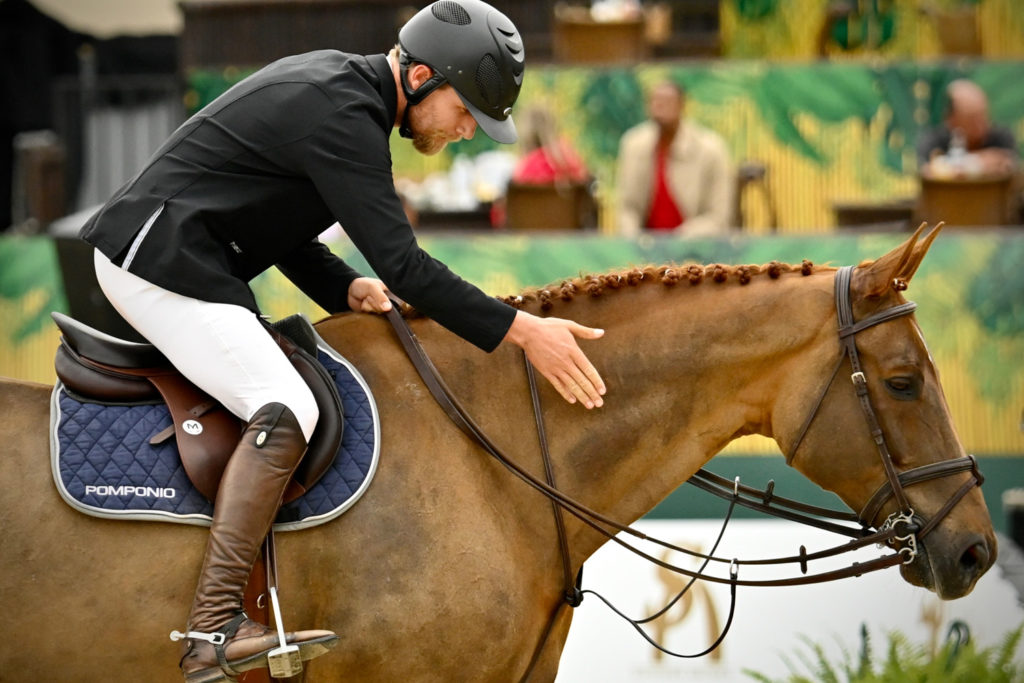
1. You’ve been quoted as saying that in 2012 and at the USEF Olympic Selection Trials, you almost quit the sport entirely. Can you tell us about this, switching trainers, and changing your riding style?
I had a successful junior career. It felt like with the success I had, there would be a continuation of results when I was in my young twenties. You can’t blame me for that kind of optimism. After the Olympic qualifiers, where I didn’t complete, we went back to California, and things kept getting worse. The results got worse. A year before, we got a new stallion that I believed was the greatest horse in the world, and we were going to ride off into the sunset together, winning everything. Then, two months after the qualifiers, I did a 1.35m class at a smaller show in California, and I had 16 faults before fence nine with that horse. It felt like everything I thought I knew had to be a lie. This, supposedly, “greatest horse on the planet,” was doing so poorly.
2. Is that when you decided to go to Normandy for a while and do some different kinds of training?
Yes. We got connected with Eric [Navet], and I trained in Normandy for two months. I didn’t show because, at that point, I felt like, what’s the point of showing if I’m going to have 16 faults before fence nine in a 1.35m? I felt like, if that’s happening, then I didn’t know what I didn’t know, or what I thought I knew wasn’t accurate. So I just trained at Eric’s farm for two months, and that kind of kicked everything off.
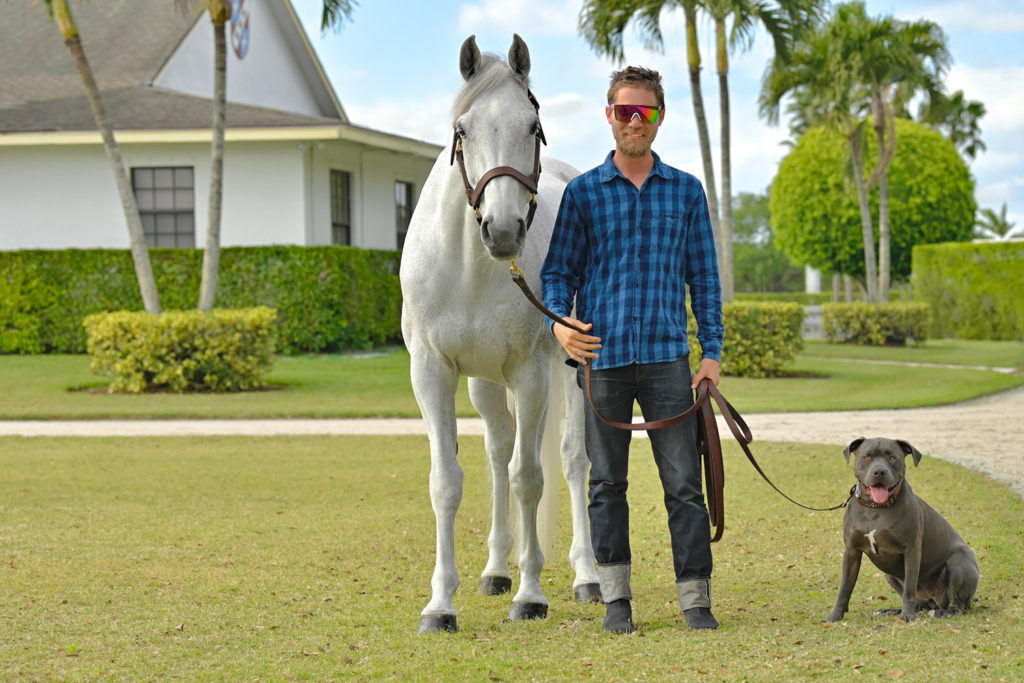
3. Was Eric emphasizing horsemanship?
I think a lot of times when people talk about horsemanship, they almost forget the sport side of it, which is a shame because then it’s hard for other people to translate: “Okay, well, how will this horsemanship method help me in the sport?” And because you can’t make that connection, it’s really hard for someone to develop. But Eric’s method was always very horse-centered. You could see the results of what we were doing together. The big thing for me is, once I can see it translate, then it’s much easier to buy into it. When you don’t see good horsemanship pay off, it’s really hard for anyone to buy in. But since I could see it translate, it made sense.
4. When you do have a great ride, can you allow yourself to savor that, or do you focus on the things you could have done better?
Yes, I might pour myself a nice glass of whiskey and enjoy it. But for me, you work really hard to get that result. So at the end of the day, it’s almost like it should be that way. For me, it’s a steady marching progression. It would feel weird if that success was out of the blue. You always need to be lucky—better to be lucky than good—but if you articulated things correctly, built a great program, and are doing really good work, you’ve achieved that success because of the work you did.
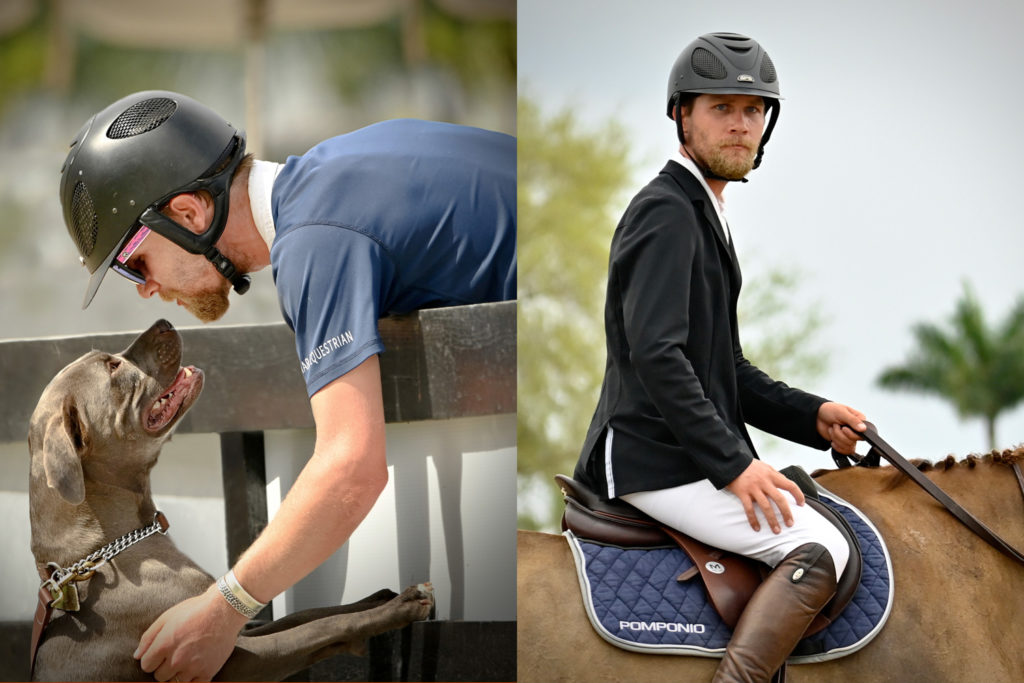
5. Are you someone who has a roadmap of where you want to
be professionally over the next several years? Or do you take things in few-month increments?
I never do a five-year plan type of thing. I don’t like setting long-term goals; I specifically don’t do that. I feel like that puts an unnecessary marker in the road. That marker can, A: make me feel like I’m falling behind unnecessarily, even if I’m not falling behind, and B: it can also make me push the horses too hard. I try to make the step that’s in front of me. I think it’s very important to be focused on what the next step is, not the point 20 steps from now.
6. In your “Walking and Talking” videos, you talked about unconventional horses. Do you like the challenge of taking that type of horse into the ring?
I prefer a horse that jumps clear. As a rider, you have to give the ride that’s right for the horse, morally and ethically, but also structurally. So many people focus so much on what is correct: building that ability to ride in a classically correct manner. But that often holds people back because they’re so stuck on it being classically correct; they don’t open their brain for the effective. If I know I would be less clear by pushing to be more classically correct, that is me being a worse horseman. A happy horse that’s sound, that’s what the horsemanship is.
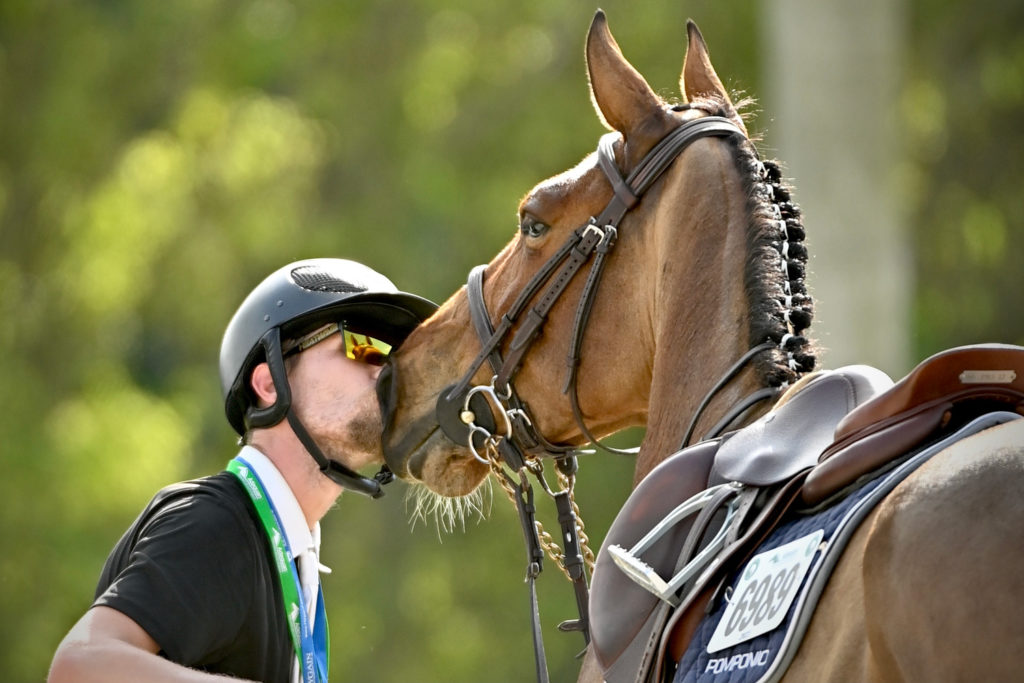
7. Can you tell us a little bit about your horse Caillou 24?
I think Caillou has had more of an effect on my riding. We’ve had him longer, and he’s very difficult to ride. We’ve had a lot of good, and less good, experiences in our years together. I think he’s 13 or 14 now, and I got him when he was seven. I’ve had him for a long time. He’s pushed me to revisit the things you think you know.
8. How were your “Walking and Talking” videos born? How did that start?
I was walking back from a class at the Kentucky Horse Park about two years ago, and I didn’t have an idea of developing a channel or anything like that. I was walking back, and I just started doing it. Then I continued to do it because it was good for me mentally to have to actually put words to my feelings. When you show, you have your feelings about what you thought was good or bad or what you need to do better and that sort of thing. But thinking it is different than putting verbal words to it, so it was good in that regard.
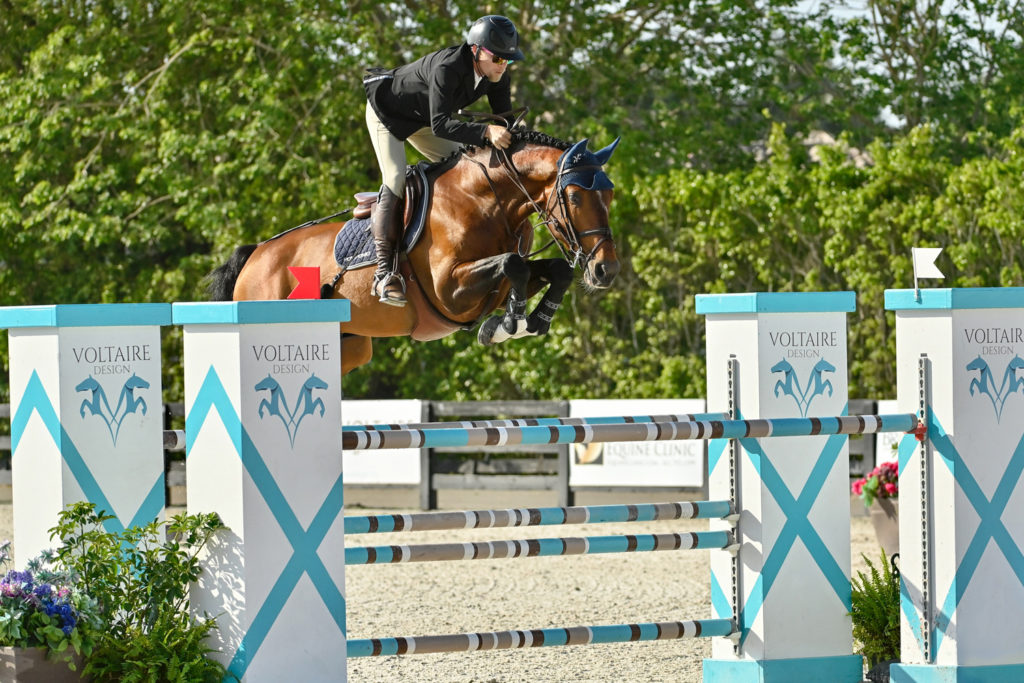
9. Tell us about your affinity for bourbon.
Obviously, I like how it tastes, but I also like the process of it. It’s kind of a uniquely American spirit.
10. Do you introduce all of your “Walking and Talking” videos with a tasting?
It kind of happened by chance because for a lot of the “Walking and Talkings,” I actually had a glass of bourbon next to me if I was sitting somewhere. I just do it because I enjoy it. I started the “Walking and Talking” not for a following or anything; I would do it if only a few people watched. A lot of it is a mental process for me.
11. I noticed you’re getting fabulous feedback on the Noëlle Floyd Masterclass that recently aired. Did you enjoy doing that?
Yes, I did enjoy doing it. The format is a lot longer form than my “Walking and Talkings,” so I could go into a lot more depth. I could connect things better for people, where it’s really hard to do that on my own. For some of my videos, I’ll think about the subject for a while before I do the video, but I never write out notes. I just do it off the top of my head.
12. Tell us a little bit about your interest in antique
dictionaries and gardening.
I’ve always had hobbies. Horses were the hobby growing up that I couldn’t stop doing. I had a bunch of other hobbies that I did for a little bit, and I stopped. The reason why I’m still riding is because I haven’t found a way to stop yet. The hobbies now are good for me mentally. If I only think about horses my brain will build feedback loops, where there are no new ideas; there’s no new perspective, and that doesn’t help me develop. New ways of approaching things are how you get better. Hobbies also keep my mind fresh. It’s interesting to learn about something so seemingly boring, like a dictionary. Think about the task of writing a dictionary with no previous dictionary. That’s a monumental task. For the English language, it took 50 years to do.
I found another interest in gardening. I stopped eating meat six years ago, and that’s where the gardening kind of came from. I only eat plants, and I also like to cook. So all of that came together, and each year I get a little bit better at it.
Editor’s Note: At the time of this July 2021 post, just two months after we posed our 12 questions to Karl Cook, his success in the ring had returned with resounding results. Within a span of three weeks, he and Caillou 24, his 14-year-old Holsteiner gelding, claimed two $137,000 Grand Prix CSI 3* wins in seven- and eight-horse jump-offs respectively, in Traverse City, Michigan.
